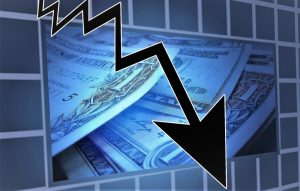Economies of scale
Economies of scale are the type of economy that a company has when it achieves an adequate level in terms of production, to produce even more of what they generally produce and at a lower cost, in other words, the more a company can grow, the more costs will be reduced. Each time the company produces a certain good, they invest less money in its manufacture. This means that, if a company has production as its main function, the quantity can increase when the inputs used rise and the outputs produced can increase by the same percentage. Each time these percentages increase, a different type of scale is produced, in this way we can say that: if the percentages increase by the same percentage, we would be talking about types of constant economies of scale, if it were in more, they would be growing economies of scale, if it were in less, in decreasing economies of scale.
What are economies of scale?
Economies of scale are the situation in which a given company reduces all production costs when they expand, so that the more you produce, the lower the cost of the company to manufacture a product is.
About economies of scale
The economies of scale consist of a series of reductions that are made to the cost of unitary manufacture, which cannot be reduced because the price of raw materials decreases, but rather, tries to make the most of the materials that are purchased and in which an economic investment has already been made. For example: when we buy a machine, our main goal is to be able to take all the possible advantages with it to produce more. By taking advantage of this machine to be able to produce a greater quantity of products, we obtain a much greater profit and the cost will be lower and lower, generating less expenses. The manufacturing costs of the products are not going to be affected either because they have already been had in a previous way. Then, once the cost has been covered in its entirety, it can be achieved that the costs remain at zero. Economies of scale are mainly about the kind of strategies that are used to achieve cost reduction after an increase in production.
Origin
The origin of economies of scale lies in the work written by Adam Smith, who in his theory explains that all the things we produce and that when we try to do it as quickly as possible, the costs will be much lower, in other words, more productivity… less cost. Henry Ford was the first person that could apply this theory and he did it in a series of assembly lines in which the Ford T were manufactured, and where each one of the workers had to carry out a task, in this way he achieved that each one of them specialized in an only work, which turns them into people with more productivity, more experts and more experienced. The formula that sustains the model of economies of scale is easy to understand, and basically consists in that the costs of a determined product will be able to diminish considerably as soon as the quantity of products or of articles that are made each time that the same ones are made, especially if we refer to a company where it is made through massive production.
Internal economies of scale
Internal economies of scale arise when some aspect within the same company leads to lower average production costs. This can be achieved through purchases of raw material in greater proportions which leads to better prices and various discounts which are responsible for the average cost drops considerably. Another aspect is the specialization, which manages to cover all areas of management when working at large scales, so that, workers can specialize in areas in which they are more productive. And finally flexibility, because when this is present there is more capital to improve the quality of products and reduce production costs. In the internal economies of scale, the final result must always be the same, and that is, to achieve a lower investment in order to obtain a greater production of elaborated articles.
External economies of scale
External economies happen when the higher production of the market acquires and gains a positive effect on all other companies or firms participating in the industry. It is the type of economy that originates for reasons merely outside the enterprise, such as geographical location, socio-political, cultural, economic factors, etc.
How to cite this article?
Briceño V., Gabriela. (2019). Economies of scale. Recovered on 3 May, 2025, de Euston96: https://www.euston96.com/en/economies-of-scale/










